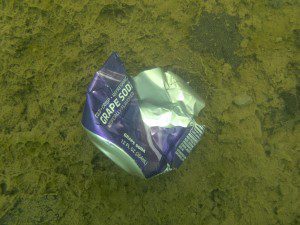![Pageflex Persona [document: PRS0000038_00053]](https://www.booksbyeric.com/wp-content/uploads/2013/08/keep-on-front-cover-web-200x300.jpg) One of my greatest pet peeves (but not my only one) is the concept of “slacktivism”. That is, people who profess to “care” about an issue, but only make the most perfunctory of gestures and never make an effort to do anything. A few years ago, you would see the call to “change your profile photo on Facebook to a cartoon character to fight child abuse” or something like that. The implication was that if you didn’t do it, you supported child abuse, I guess. Fortunately, those things seem to have died out.
One of my greatest pet peeves (but not my only one) is the concept of “slacktivism”. That is, people who profess to “care” about an issue, but only make the most perfunctory of gestures and never make an effort to do anything. A few years ago, you would see the call to “change your profile photo on Facebook to a cartoon character to fight child abuse” or something like that. The implication was that if you didn’t do it, you supported child abuse, I guess. Fortunately, those things seem to have died out.
Tomorrow is the first day of October and with that comes Breast Cancer Awareness Month. You’ll see professional athletes wearing pink tape on the field and celebrities donning pink ribbons when they go out on the town. That’s all well and good, and for all I know those public figures have also made large contributions to their favorite (and legitimate) charities working to find a cure for cancer. I will admit to being skeptical, but will give them the benefit of the doubt.
A couple years ago, my friend Jean Hanna Davis invited me to sit with her and record our conversations while she went through chemotherapy for breast cancer. That go-round (her second) was almost 10 years after her first time round of chemo. Those interviews eventually became the book Keep on, Keepin’ On, A Breast Cancer Survivor Story. Jean explained to me that she has a love/hate relationship with October. There are times, as a survivor, she just doesn’t want to deal with it. She doesn’t want the constant reminders. At other times, she said she really appreciates the visible show of support from friends and strangers.
And that brings me back to the idea of “doing something.” Most of us can’t afford to make large donations, and that’s fine. (Of course, a lot of little donations do add up.) It’s possible, however, to make a difference for someone with smaller gestures. Not having to cook when you feel bad post-chemo is a blessing. So are donations of paper plates and plastic knives and forks. That way, no one has to do dishes and there’s no problems with a metallic taste. This time of year can be exhausting when it comes to yardwork. Offer to rake leaves or decorate for the holidays.
If you know someone who is dealing with breast cancer, or any cancer for that matter, understand that they may not exactly be thrilled with your pink hair to “raise awareness.” But they might appreciate some help with the kids, a massage or a nice home-cooked meal..

 I know lots of divers who do that. On the other hand, if fishing line is entangled in a reef, you’ll do more damage by pulling it lose than leaving it in place. A can or a bottle that has been on the bottom for a while might have something living in it. In the local lake where I learned to dive, and many divers explore every day in the summer, I often see beer cans, plastic cups and other debris on the bottom.
I know lots of divers who do that. On the other hand, if fishing line is entangled in a reef, you’ll do more damage by pulling it lose than leaving it in place. A can or a bottle that has been on the bottom for a while might have something living in it. In the local lake where I learned to dive, and many divers explore every day in the summer, I often see beer cans, plastic cups and other debris on the bottom.





 In one conversation, a good friend made the comment that he had always wanted to take a ride on a riverboat and go through the locks on the river. A few texts to my friend JD Pauley later and we had set up a river trip on the sternwheeler Hobby III. We cruised through the locks at Marmet and had a great day on the water. It was a day full of talking about the history of the river and the industry and what the Great Kanawha River means to West Virginia.
In one conversation, a good friend made the comment that he had always wanted to take a ride on a riverboat and go through the locks on the river. A few texts to my friend JD Pauley later and we had set up a river trip on the sternwheeler Hobby III. We cruised through the locks at Marmet and had a great day on the water. It was a day full of talking about the history of the river and the industry and what the Great Kanawha River means to West Virginia.